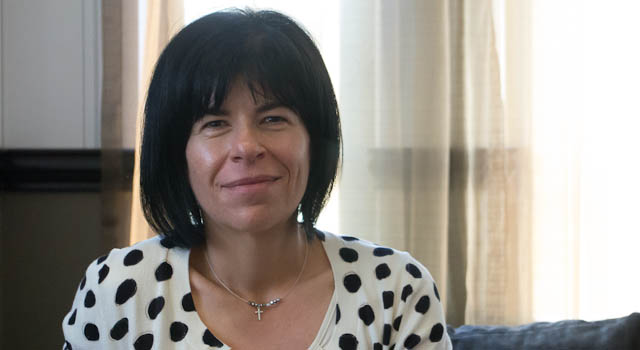
Piracy will remain a problem for entertainment and media companies until barriers to access by consumers are removed and it until becomes more convenient for customers to pay for content than copy it.
Furthermore, media companies need to be willing to embrace technological developments quickly if they are to keep abreast of changing consumer needs.
These are just two of the findings in PricewaterhouseCoopers’ (PwC’s) third annual SA Entertainment & Media Outlook for the forecast period 2012 to 2016.
Vicki Myburgh, entertainment and media industries leader for PwC Southern Africa, says firms in the sector are taking a more “granular” approach to their businesses and, generally speaking, are looking at market-specific sectors in their own countries rather than focusing across countries and regions.
Worldwide, mature markets are showing slower growth, with countries such as Germany and Japan seeing sector growth of less than 3%/year over the forecast period. Growth rates are better in the Brics (Brazil Russia, India, China and SA) nations, with SA enjoying annual growth of 10,2%/year over the forecast period, which is comparable with Russia and Brazil. India will enjoy 14,3% growth due to huge uptake of mobile in the region.
“Digital spending is the clear driver of growth,” says Myburgh. “Digital” is defined by PwC as online and mobile Internet advertising; mobile TV subscriptions; digital music; electronic home video; online and wireless video games; digital consumer magazine; trade magazine and newspaper circulation spending; electronic consumer, educational and professional books; satellite radio subscriptions; and broadband and mobile Internet access.
Digital expenditure accounts for 20,4% of consumer entertainment and media spending in SA, a figure PwC expects will grow to 32,6% by 2016.
Myburgh says there is still a huge difference between broadband penetration in mature markets compared to emerging markets. Mobile Internet is driving growth and bolstering access in emerging markets and is expected to continue doing so. “Smart device sales are rocketing globally,” she says. Smartphone penetration worldwide is expected to increase from the current 17% to 68% by 2016.
In SA, of total digital expenditure, 31% comes from advertising, with the balance coming from consumers. The advertising figure is expected to drop to 29% by 2016. Myburgh says digital advertising is still perceived to be worth less than physical advertising in SA and that this is going to take time to change. She adds, however, that as the market matures and it becomes possible to demonstrate the value of digital channels — particularly for reaching niche audiences — this should change.
PwC expects the SA music industry to reach the tipping point — where digital revenues outstrip physical — by 2015. Internet advertising in SA is expected to grow from 2% to 8% of total spend by 2016, taking its growth, fairly evenly, from the traditional channels of newspapers, magazines, television and radio.
In its research PwC found that consumers’ increasing connection to their devices — both literally and emotionally — means many experience anxiety at the idea of being disconnected. Myburgh says there is also a sizeable shift to the “second screen”, where consumers engage in consumption and interaction simultaneously — for example, using social media while watching sporting events on television.
Consumers’ decreasing tolerance to barriers to accessing content, growing trust in technology and declining interest in owning content is just one of the reasons why piracy remains a problem, particularly in SA.
Myburgh says the two biggest challenges facing content producers and distributors are piracy and regulation. “Most consumers don’t see piracy as a crime, or they see it as a victimless one,” she says. “The industry needs to shift consumers to the legitimate end of the spectrum.”
Some media companies, including film distributors, are considering releasing content on all platforms simultaneously because ease of access and timing are two key factors in getting consumers to pay for content.
The other challenge, regulation, stems from the fact that traditional industries like newspapers and television are heavily regulated, whereas the Internet is not. Myburgh says regulators have struggled to keep up with the pace of change in the digital era.
There’s also been a shift in advertising from the traditional “bought-and-placed” media to “earned” advertising through word-of-mouth, and advertisers using data to target receptive audiences with the right messages. “Marketing agencies are becoming digital consultants,” Myburgh says. Digital and traditional agencies are working side by side but are expected to merge and integrate in coming years.
For consumers, privacy remains a big issue and Myburgh says entertainment and media companies, and businesses more generally, need to create a situation where consumers believe they control their own data. Consumers need to be encouraged to share their information — whether through incentives and rewards or other means — but still feel they own it and have control over it and how it is distributed.
Skills
PwC found that 35% of entertainment and media CEOs surveyed worldwide said they had to delay or cancel strategic initiatives in the past year because of a lack of talent. Myburgh says companies traditionally pay less for skills than technology companies and, if they’re to attract the right talent, they are going to have to reconsider their approach to employees and consider things like outputs-orientated approaches to measuring performance, flexible working time, and allowing people to use their own devices.
Myburgh says “millennials” — those who’ve grown up with the Internet — have different job expectations. More than 40% prefer electronic communications to face-to-face or telephonic communications; 59% take account of the technology offered by prospective employers when considering a job; half use their own technology at work; and 78% say access to their preferred technology makes them more efficient.
“Companies must keep things simple, make technological adoption and change easy, embrace diversity, and take risks and be willing to fail.” Myburgh says companies need to be able to respond and adapt more quickly because technology often moves faster than they do. — (c) 2012 NewsCentral Media

